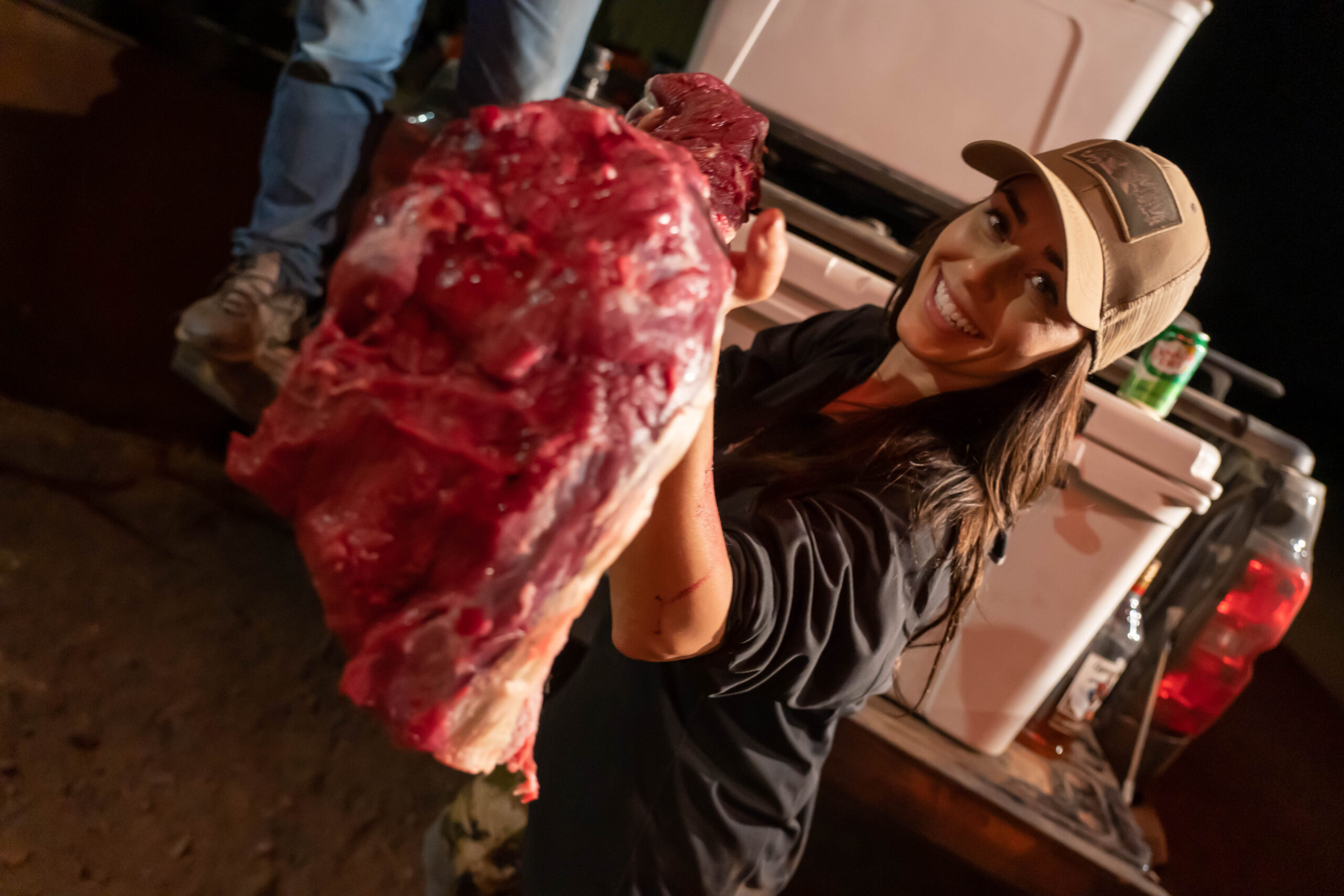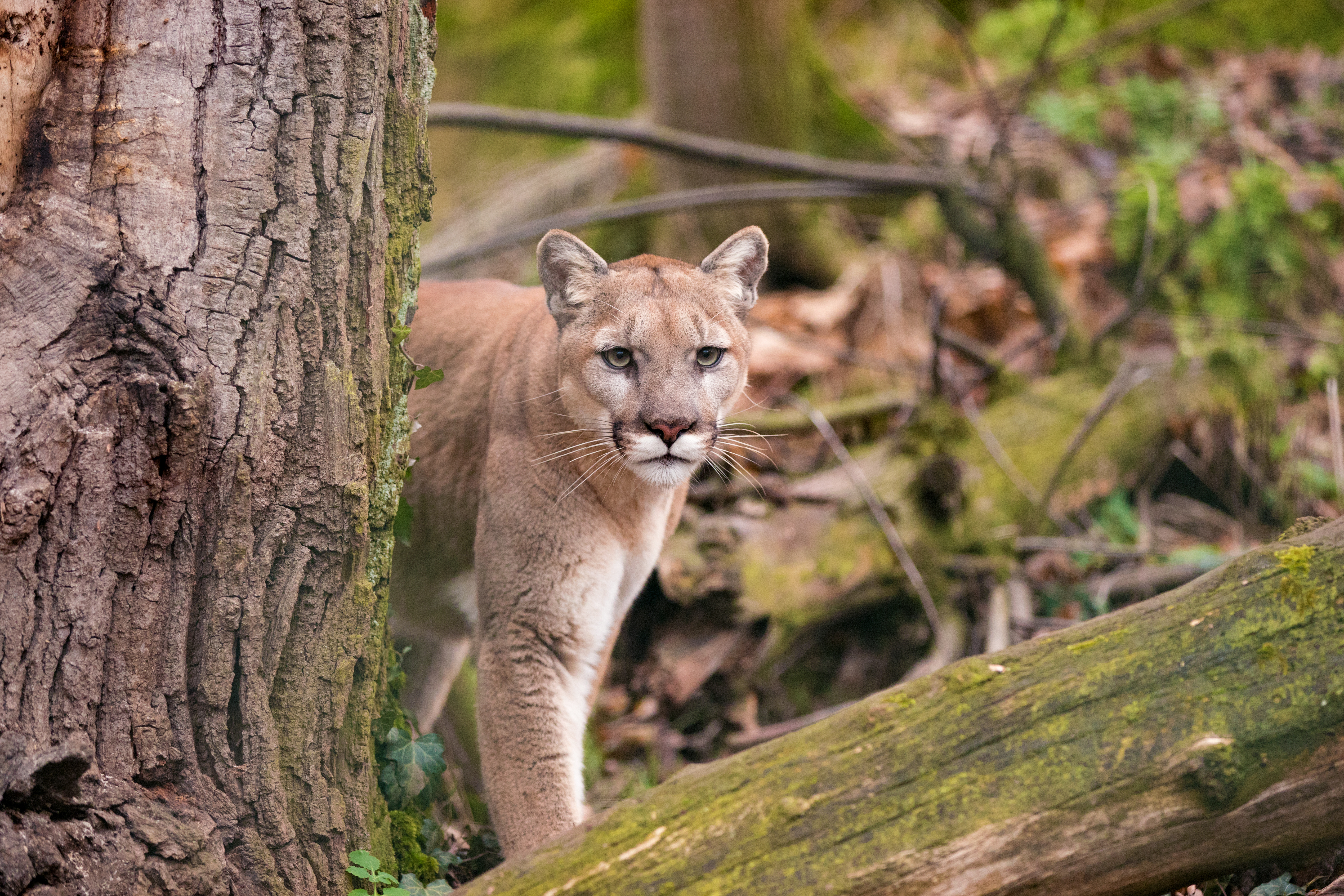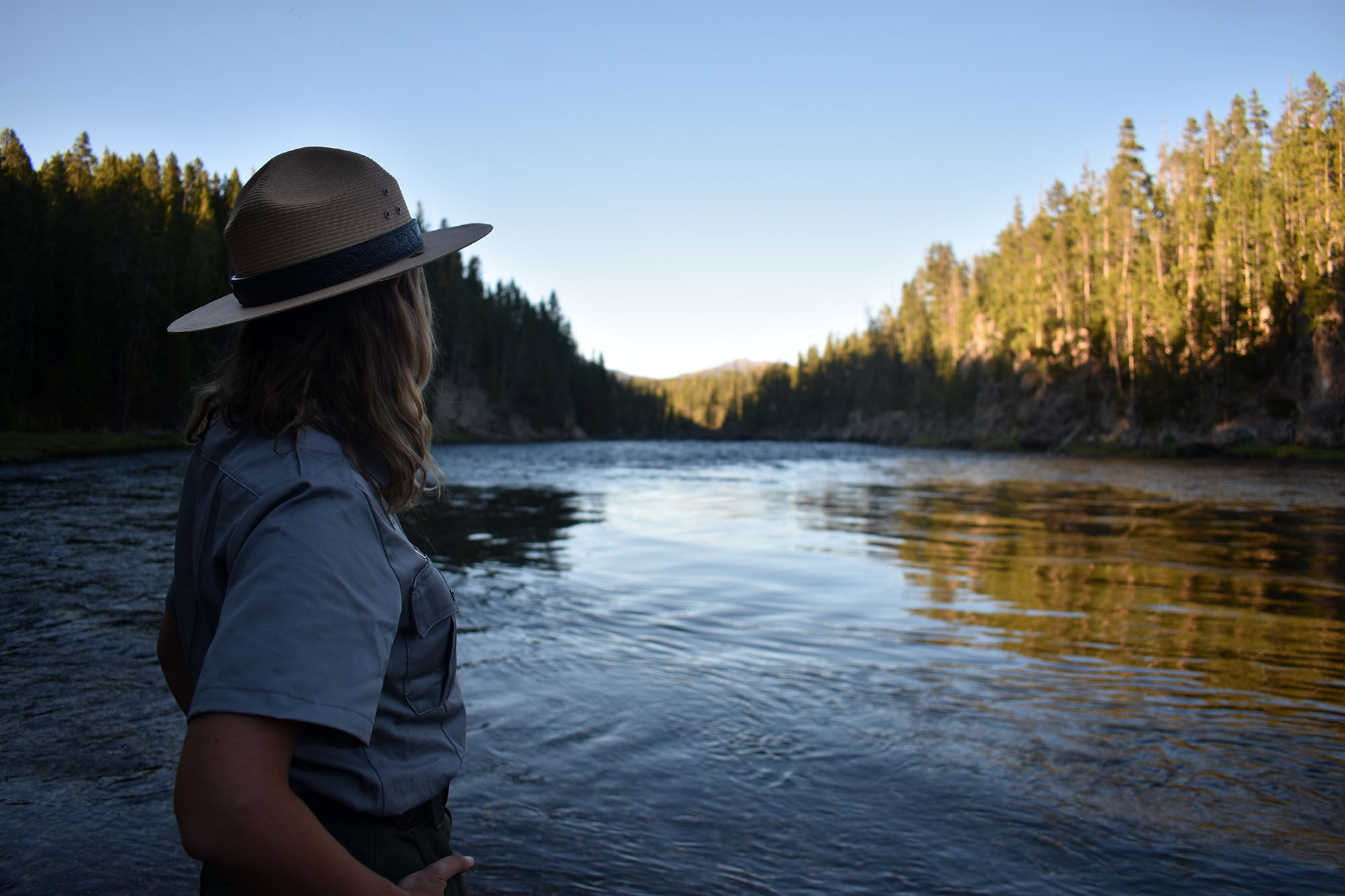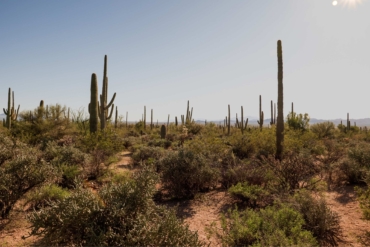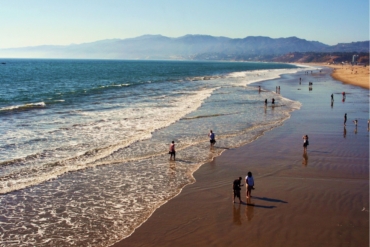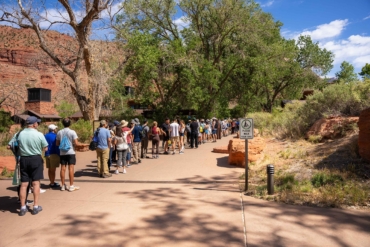One of the greatest gifts a person can receive is being born into a life of simplicity, and boy was my upbringing simple. I popped into this world and was carried home to a stretch of modest ground in the Rattlesnake Wilderness of western Montana. My family supported itself by harvesting the fruits of the land. It wouldn’t be until much later in life that I would come to appreciate the gift of that simple start, not to mention the privilege of being that kind of broke.
The reality of a little subsistence farm is one of constant prep. We were either filling the freezer for the long winter, preparing the ground for the spring planting, plotting ways to keep animals alive through the hot, dry summer, or boiling mason jars to preserve meats, fruits, and vegetables as the colors transitioned into autumn.
We raised a few animals for meat, but the reality was that we couldn’t justify consuming such a valuable source of income. You just can’t get high on your own supply, if you know what I mean.
The meat we ate came from the mountains which sat behind the barn. Hunting was a way of life, or so I thought. Now, I don’t know that I’d necessarily call it that.
Here Come the Semantics
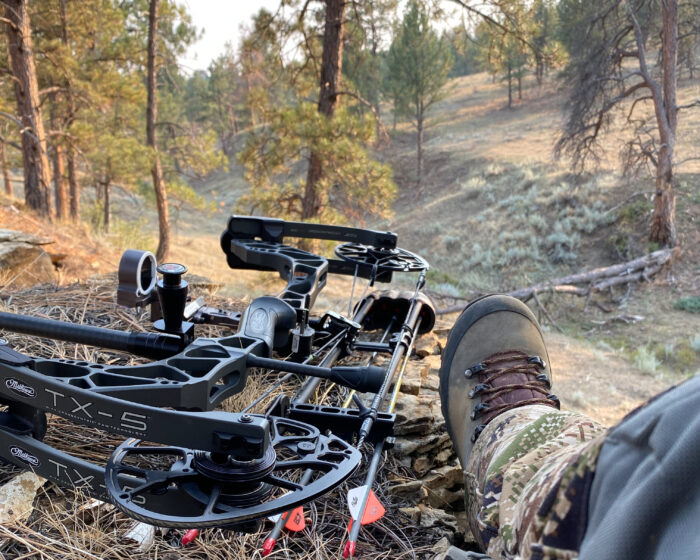
Hunting. Harvesting. Shooting. Killing. People have decided to get all up in arms about the way we describe hunting. I’d say it’s been caused by a combination of PC police meets a bit of sterilization.
The word “kill” is a harsh one. It’s absolutely accurate, but undoubtedly sharp (and probably triggers some algorithm somewhere).
“Shoot” is another word that in modern times is triggering, no pun intended. For all those reasons and more, there’s been a shift in which words seem to be OK to use and which aren’t.
Shit, I’ve heard people get in all-out battles over using the word “shot” versus “arrowed.” Now we’re even drawing a line between the right words to use depending on the weapon you choose.
I am a hunter. I have hunted, harvested, shot, killed, arrowed, dropped — or whatever you want to call it — many animals. It’s how I was raised and how I continue to feed my family.
I’ve also used almost all of those words to describe my hunts, but not for the reasons that seem to motivate others. Some of the words I use interchangeably, but some are more definitive for me.
A hunt is not a harvest and a harvest is not a hunt, though it can turn into one.
The Hunt and the Harvest
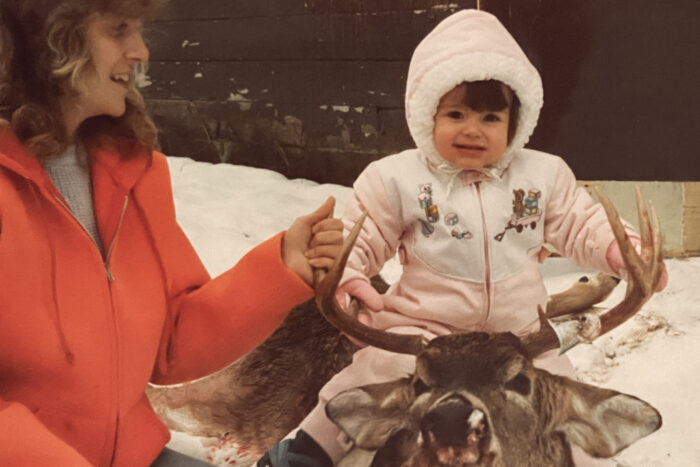
I’ve come to accept as an adult that the way we put a large amount of game meat in my childhood freezer no longer fits my definition of hunting. For the most part, by my (unabashedly superior) definition, we harvested meat. That’s where my line is drawn.
Don’t get me wrong, my family hunted. For big game, those hunts only came once we had the room to do it. If the freezer was stocked and we had the time, damn straight we’d go chase a big bull. That’s more food in our bellies and stories in the quiver.
Bows came out only after rifles had done the mandatory work.
I hunt. I also harvest.
I consider hunting and harvesting two activities that are related but distinctly different. The common denominator between the two is that I go into the field with the intent to kill an animal to provide meat for my family. The distinction lies in the method. I am fortunate to have been born into a circumstance that affords me the opportunity for both.
My typical big game season may be the best way to explain, and honor, both the hunt and the harvest.
Do You Even Hunt, Bro?
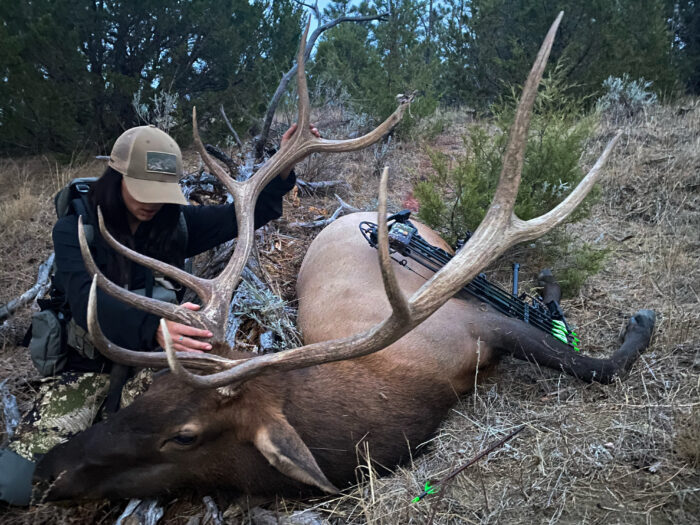
In August, I get serious about scouting the areas I plan to hunt elk. I make as many trips as I can fit into my schedule to the places I plan to spend the bulk of my September. Armed with little more than hiking boots, my pack, a host of unhealthy snacks, and a pair of binoculars, I set out to the areas I’ve known to hold elk.
I typically embark on foot in the early morning light, find a perch, and sit. For hours I rest, elbows on bent knees, to glass countless hillsides and draws looking for the bachelor groups I’ve watched years prior. I trace their daily patterns of watering, feeding, and bedding.
I also keep close tabs on the cow groups I come across, hoping both to follow the bulls in the early season pre-rut, and if needed, track the cows being sought by eager bulls in the second half of the month.
The scouting and tracking of elk consume the end of my summer. In reality, I sit there trying to stay awake long enough to see something through the intense stretches of absolute boredom.
September, at Last
When September finally arrives, I pack my life into my truck and set out. Pending conditions and location, I either set up a wall tent base camp or utilize the back seat of my truck as a quick and easy place to lay my head.
I hunt both solo and with my partner, dependent on our schedules and my unbridled and continued desire to set out alone. Twice a day, we head out with bow in hand to traverse countless mountainsides and meadows in the hopes of closing the gap between ourselves and the elk we choose to take home.
Blistered feet, tender backs, and dehydrated food indigestion are the hallmarks of a September well-lived. Long, hot days are capped with frosty, cold nights. Bitter morning coffee prepares us for the pain of the day, while cheap beer awaits us to soften our return.
We test our limits, restrict our tools, and challenge our skills.
We do it this way to honor traditions of the past.
We do it this was to create our own traditions for the future.
We do it this way because we choose to.
When we hunt, we set about completing the task of bringing home wild game in a way that observes all the aspects of our customs. In the end, the goal of the hunt is a combination of experience, story, tradition, and meat.
In the past few years, I’ve put in more hours in the field than I ever have. I’ve challenged myself in ways I never have. Often, I came home with an empty cooler and a full-ass heart.
Not to use my grandfather’s worn-out line, but that’s why they call it fishing, not catching.
A hunt, more often than not, doesn’t even involve a kill.
Harvest Season
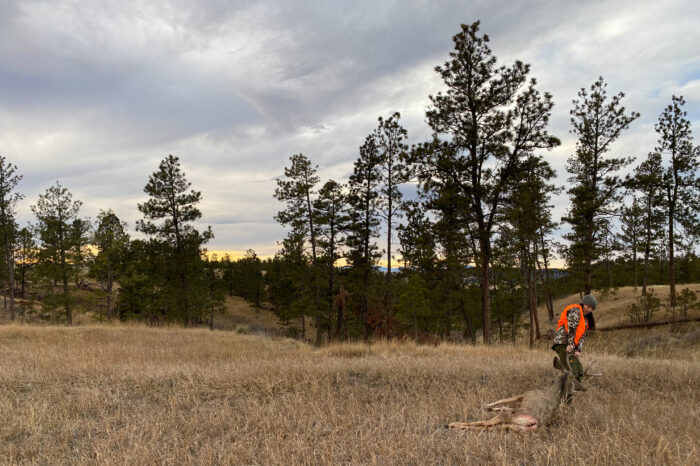
My family eats wild game. We always have and will likely always continue to, so long as we have the access and ability. After an archery season spent hunting my ass off, sometimes the freezer is still left nearing empty. This is when the switch from hunting to harvesting happens for me.
As a child, I don’t remember many hunts, but I do remember a lot of harvests. Rarely did we ever go out for miles scouting elk or deer. Even rarer were the times we went out with a bow strapped to our backs.
A base camp was not something we needed. We had an obligation to fill the freezer with as much meat as possible to feed my large, extended family. So, we harvested wild game.
The Practice
Dressed in jeans, flannels, and blood-stained, faded, hand-me-down orange, we piled into one of the farm trucks before daybreak and hit the one dirt road that led away from our little homestead.
Typically, somewhere along that road, we’d inevitably find a herd of meandering elk or deer feeding in a meadow or standing on the edge of the timber.
A slow roll became a stop.
Doors opened.
Barbed wire was stretched, held, and crossed.
A short walk later, we were lying prone, crosshairs set on the largest cows, does, or whatever we had tags for.
Triggers were pulled.
Tags were filled.
Our successful harvests were then field-dressed and loaded into the back of the truck whole. They made it back to our barn, where we began that next stage of our annual prep. Mixed with our own pork cuttings, we would process the elk and deer into meals for the coming year.
In all honesty, there were times that the animals we sought showed up on our land, and we barely had to leave the house. To me, that doesn’t qualify as a hunt. This, to me, was the practice of harvesting.
My Harvests
I’ll use my own 2021 hunting season as an example. I harvested two animals.
The first was a cow elk that required no more than a mile of hiking. I rode with a rancher in his Ranger, across his land, to partake in a management hunt.
We hiked a hillside and waited in the blustery cold in the hopes that a sudden snow flurry would clear long enough to reveal elk. A sudden spotting and a quick run down the hillside found me standing over my elk for the season within a few minutes. I chose a cow, took the shot, and loaded the meat.
This was a harvest. I knew nothing of this animal or its patterns, nor had I ever laid eyes on it before. I never hunted this animal; I just harvested it.
The second animal I harvested was a mule deer buck that required even less “hunting” effort. We drove a dirt road, saw the deer in a field we had permission to hunt, parked the truck, walked a ways over into an area where we were out of sight, took the shot, and loaded the meat.
That isn’t a hunt. That’s a harvest.
Honor in Both
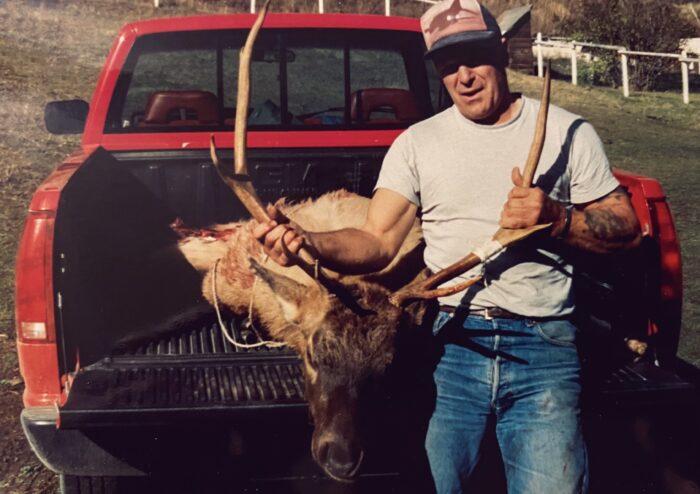
My definitions of hunting and harvesting are equal, whichever “purity” scale one assigns. I look back at my family and we have a long history of both.
Hunting was the skill passed down. Harvesting kept us fed. Hunting was the tradition we fostered. Harvesting kept us strong enough to work. Hunting taught us how to harvest. Harvesting allowed us the time to hunt.
An early harvest meant we had the cushion of a healthy freezer, allowing us the opportunity to pick up a bow, climb a tree, pack in for a night, and test our skills in the field. That was a luxury we weren’t always afforded.
I am proud of my family traditions and the lessons I’ve learned both hunting and harvesting our wild game.
The Controversy
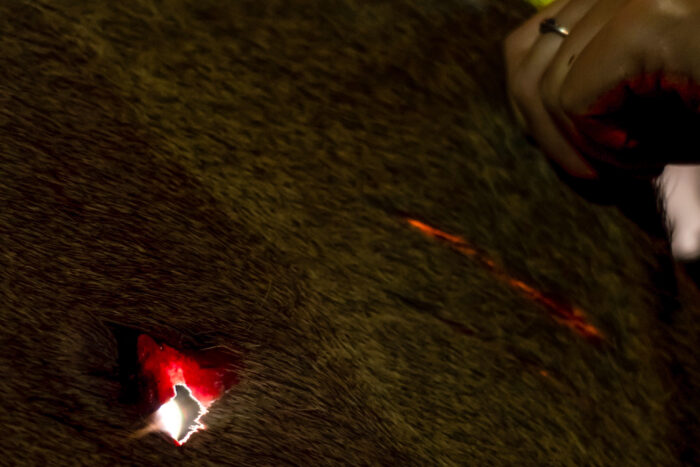
Words matter. I understand that some take issue with using “harvest” to describe the act of going out with the intent to kill an animal for food. The feeling seems to be one of sugar-coating the process.
We are killing animals. It is a fact that doesn’t change no matter what you label it. Harvesting tends to feel cleaner and has a more pure connotation than hunting — and certainly more so than killing.
Perhaps that, in itself, is the issue. Instead of pointing fingers and belittling those who partake in our traditions and heritage, we need to redefine what hunting and harvesting mean to us. We hunt, harvest, shoot, arrow, and kill animals. I’m not one to sterilize what we do, but I choose to define those differences for myself.
I, personally, am honored to do it all, regardless of what you choose to call it.
